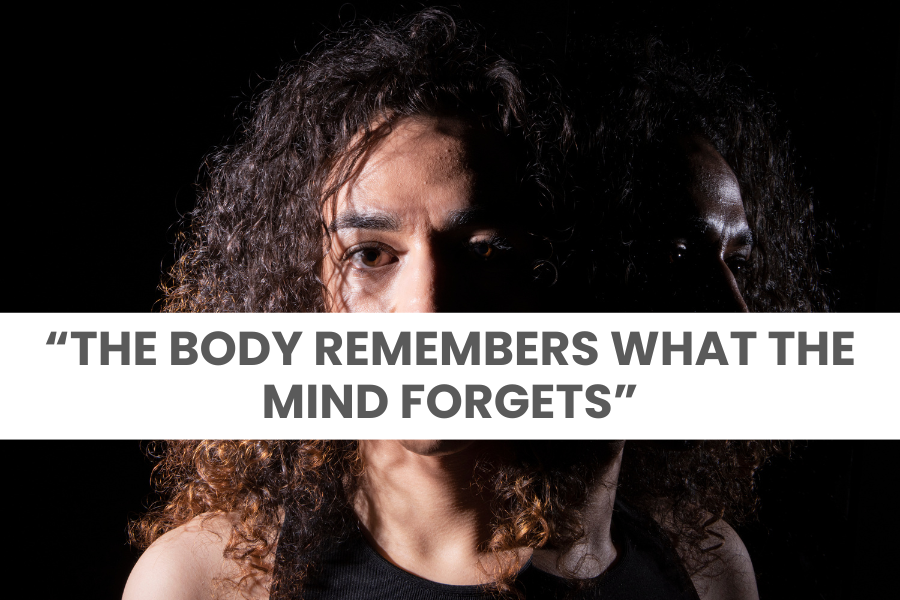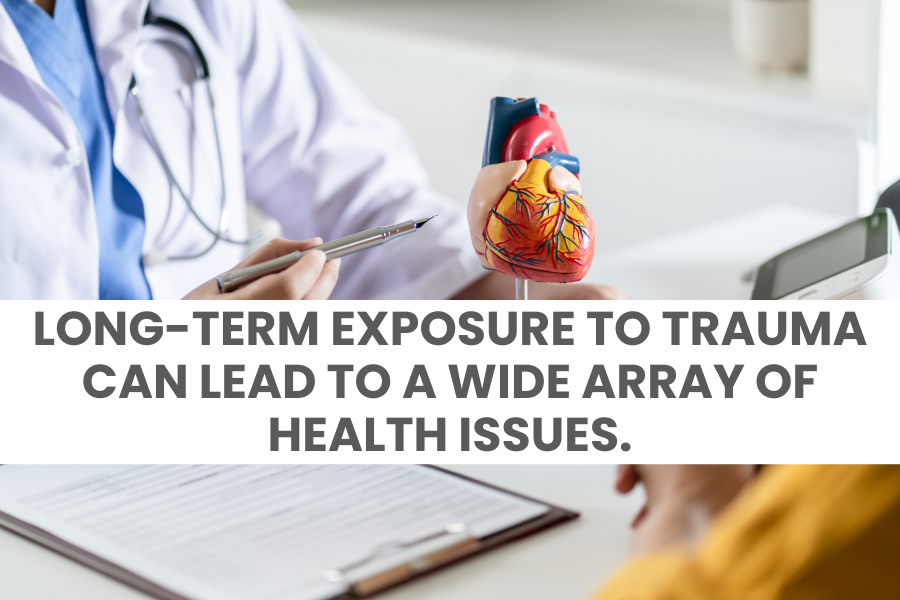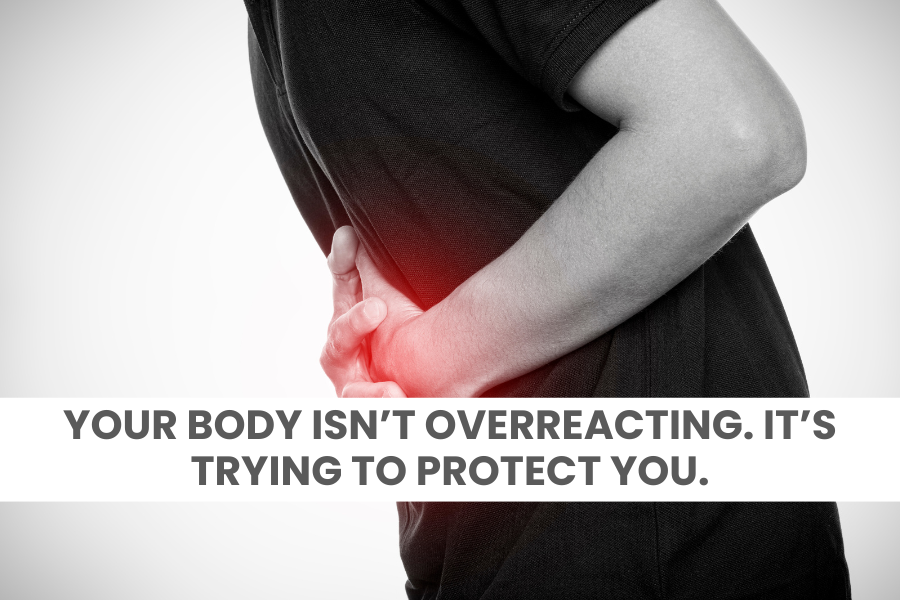This week, I had the honor of speaking at the National Organization of Black Law Enforcement Executives (NOBLE) conference. My session focused on a deeply personal topic:
The long-term impact of trauma — especially for those serving in law enforcement.
Day in and day out, law enforcement professionals face high-stress situations and critical incidents that can leave invisible marks. Over time, this exposure doesn’t just affect the mind—it imprints itself on the body.

This post is all about the long-term effects of trauma.
In my talk, I highlighted key findings backed by psychological and neurological research showing that trauma isn’t just a fleeting emotional reaction—it’s a deep physiological experience too.
When left unprocessed, it can profoundly shape how we think, feel, and relate to others for years… even decades.
Trauma Isn’t Just Emotional—It’s Physical
Trauma isn’t reserved for the battlefield or crime scenes. It can stem from childhood abuse, domestic violence, medical procedures, racial discrimination, loss, or serious accidents.
And here’s the part that often hits the hardest: you don’t even have to remember the trauma for it to affect you.
That’s because trauma often lives in the body in ways that aren’t always obvious.

It hides in muscle tension, shallow breathing, poor digestion, or chronic fatigue. You might notice tightness in your chest, headaches that come out of nowhere, or a gut that’s always in knots. These aren’t random—they’re often the body’s way of sounding the alarm.
As Dr. Bessel van der Kolk writes in The Body Keeps the Score, “The body remembers what the mind forgets.” When trauma isn’t processed or released, it settles in our nervous system, influencing how we move through the world—consciously or unconsciously.
The Link Between Chronic Stress and Physical Illness
When we experience trauma, our body kicks into survival mode—fight, flight, freeze, or fawn. But for many trauma survivors, the body never fully comes out of that state. That ongoing stress response can take a serious toll. (Source)

Research shows that chronic stress and unresolved trauma can disrupt nearly every major system in the body:
- Endocrine system: leading to hormonal imbalances
- Immune system: weakening your ability to fight off illness
- Metabolic system: increasing risk for obesity and insulin resistance
- Cardiovascular system: elevating blood pressure and risk of heart disease
Conditions like Type II diabetes, hypertension, autoimmune diseases, digestive disorders, and even certain cancers have all been linked to unresolved trauma and chronic inflammation.
It’s not “all in your head.” It’s in your nervous system, your cells, your immune response.
And if the root cause is trauma, treating only the symptoms won’t lead to long-term healing.
Why Our Healthcare System Often Misses the Mark
Unfortunately, trauma-informed care still isn’t the norm.
Many healthcare providers are trained to treat symptoms — headaches, anxiety, insomnia, high blood pressure — but they don’t ask why these symptoms are showing up.

This disconnect leads to polypharmacy, where individuals are prescribed multiple medications that mask symptoms rather than address the underlying trauma. Patients often bounce from doctor to doctor, collecting prescriptions, but rarely being asked, “What have you been through?”.
Without understanding the story behind the symptoms, healing remains out of reach. We must do better. True wellness means treating the whole person—body, mind, and history.
Trauma Responses Are Not Character Flaws
Post-Traumatic Stress Disorder (PTSD) is one of the most widely recognized conditions linked to trauma—but it’s not the only way trauma shows up. Many people experience trauma-related symptoms without ever receiving a formal diagnosis. And just because it’s not labeled doesn’t mean it’s not real.
You might notice yourself feeling:
- Hypervigilant—always on edge or scanning for danger
- Irritable or moody without knowing why
- Emotionally shut down or avoiding people, places, or situations
- Restless or unable to sleep
- Physically unwell — headaches, fatigue, or other symptoms doctors can’t explain
These aren’t signs that something’s “wrong” with you. These are your nervous system’s protective responses. When you’ve experienced something overwhelming in the past, your body holds on to that memory — even if your mind doesn’t. It reacts to anything that feels even slightly familiar with the same intensity it did back then.

That’s why understanding how trauma works is so powerful. It shifts the question from “What’s wrong with me?” to “What happened to me?” And when you realize your reactions come from a place of survival, not weakness… you can start to meet yourself with more self-compassion—and that’s where real healing begins.
Healing Stored Trauma: There Is Hope
Yes, you can heal from trauma—but it takes intentional work.
Your body wants to heal; it just needs what you may have been missing: safety, time, and the right tools.
Healing modalities that focus on the body—alongside the mind—are especially powerful for stored trauma. These include:
- Somatic Experiencing: helps the body release trapped survival energy
- EMDR (Eye Movement Desensitization and Reprocessing): helps reprocess traumatic memories
- Trauma-informed yoga: connects breath, movement, and safety
- Breathwork and mindfulness: ground the nervous system and promote emotional regulation
- Therapy with a trauma-informed practitioner: provides support for unpacking your story
These approaches remind the body it’s safe now. They help us reconnect with parts of ourselves we’ve shut off for protection. And with time, they can help transform our relationship with our past.
Creating Safe Spaces for Healing
Healing doesn’t happen in isolation—it happens in safe, supportive environments. Whether that’s in therapy, community spaces, spiritual practices, or loving relationships, we heal when we feel seen and heard.
If you’re on a healing journey, surround yourself with people who validate your experience—not dismiss it. Choose environments where you don’t have to shrink or pretend. Your healing deserves gentle soil to grow.
And if you’re someone who supports others—whether professionally or personally—remember:
Simply holding space, listening without judgment, and offering kindness can be a profound act of service.
🌱 Trauma can live in the body—but it doesn’t have to stay there.
🌱 Healing is possible—and you deserve it.
🌱 You are not broken. You are human—and you are resilient.

This post is all about the long-term effects of trauma.
+ show Comments
- Hide Comments
add a comment